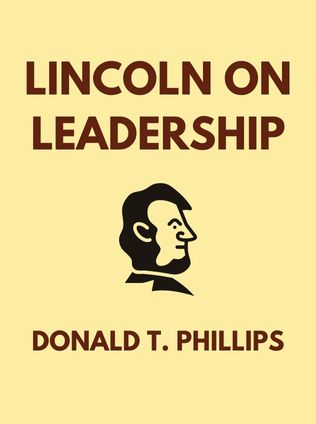
Lincoln on Leadership
Executive Strategies for Tough Times
By Donald T. Phillips
Published 02/1993
About the Author
Donald T. Phillips is an acclaimed author recognized for his ability to blend history with practical leadership insights. His work often centers on drawing lessons from historical figures, presenting them in a way that is both accessible and applicable to contemporary leadership challenges. In "Lincoln on Leadership," Phillips takes a deep dive into the leadership strategies of Abraham Lincoln, a figure many consider the greatest U.S. president of all time. Phillips doesn’t just recount historical events; he dissects them to uncover the principles that guided Lincoln and shows how these principles can be applied to modern leadership practices. This approach has made Phillips a sought-after voice in the field of leadership studies, providing timeless wisdom through the lens of history.
Main Idea
"Lincoln on Leadership" is a study of Abraham Lincoln’s leadership style during one of the most challenging periods in American history. Phillips argues that Lincoln's success was not just due to the decisions he made, but also to the values and principles that guided those decisions. The book provides a framework for leadership that is rooted in accessibility, ethical decision-making, and strategic perseverance. By examining Lincoln’s methods, Phillips offers readers a blueprint for becoming more effective leaders in their own lives and organizations. The core message is that great leadership is as much about the character and values of the leader as it is about their actions and decisions.
Table of Contents
- Working With Others
- Leading Ethically
- Making Decisions
- Conclusion
Working With Others
The first major theme Phillips explores is Lincoln’s exceptional ability to work with others. Lincoln’s leadership was characterized by a deep understanding of the importance of personal connections. Unlike many leaders who maintain a distance from their subordinates, Lincoln believed in being accessible and approachable. This approach not only allowed him to gather valuable insights from people at all levels of his administration but also helped him build trust and loyalty.
Lincoln was known for his "open-door" policy at the White House, where anyone could come and speak to him directly. He often visited soldiers on the battlefield, talked with citizens, and engaged with his advisers on a personal level. This level of accessibility was unusual for a leader of his stature and time, but it was a deliberate strategy on Lincoln's part. Phillips emphasizes that Lincoln’s approachability made people feel valued and heard, which in turn increased their willingness to follow his leadership.
Phillips offers practical advice for modern leaders looking to emulate Lincoln:
- Be Present: Leaders should make themselves available to their teams. By being physically and emotionally present, leaders can better understand the needs and concerns of their employees.
- Encourage Dialogue: Foster an environment where open communication is encouraged. This means not only listening to your team but also engaging in meaningful conversations with them.
- Build Relationships: Take the time to get to know your team members on a personal level. This helps build trust and ensures that your team feels supported and valued.
Lincoln’s ability to build strong relationships was not limited to those who agreed with him. In fact, one of his most remarkable achievements was his ability to work with individuals who were initially his political rivals. This is most famously exemplified in his formation of a "team of rivals," a cabinet composed of men who had once opposed him. Phillips notes that Lincoln’s willingness to include these individuals in his administration was a testament to his confidence and his understanding of the importance of diverse perspectives.
Lincoln’s approach to working with his rivals was grounded in respect and a genuine desire to unify the nation. He did not view differing opinions as threats but rather as opportunities to refine his own thinking and make better decisions. This ability to embrace diversity of thought is a critical lesson for modern leaders who often operate in environments where collaboration and innovation are key to success.
Sign up for FREE and get access to 1,400+ books summaries.
You May Also Like
The Subtle Art of Not Giving a F*ck
A Counterintuitive Approach to Living a Good Life
By Mark MansonRich Dad Poor Dad
What the Rich Teach Their Kids About Money - That the Poor and Middle Class Do Not!
By Robert T. KiyosakiHow To Win Friends and Influence People
The All-Time Classic Manual Of People Skills
By Dale Carnegie



















